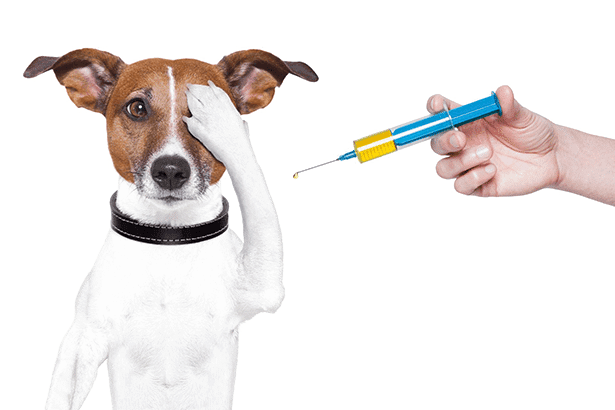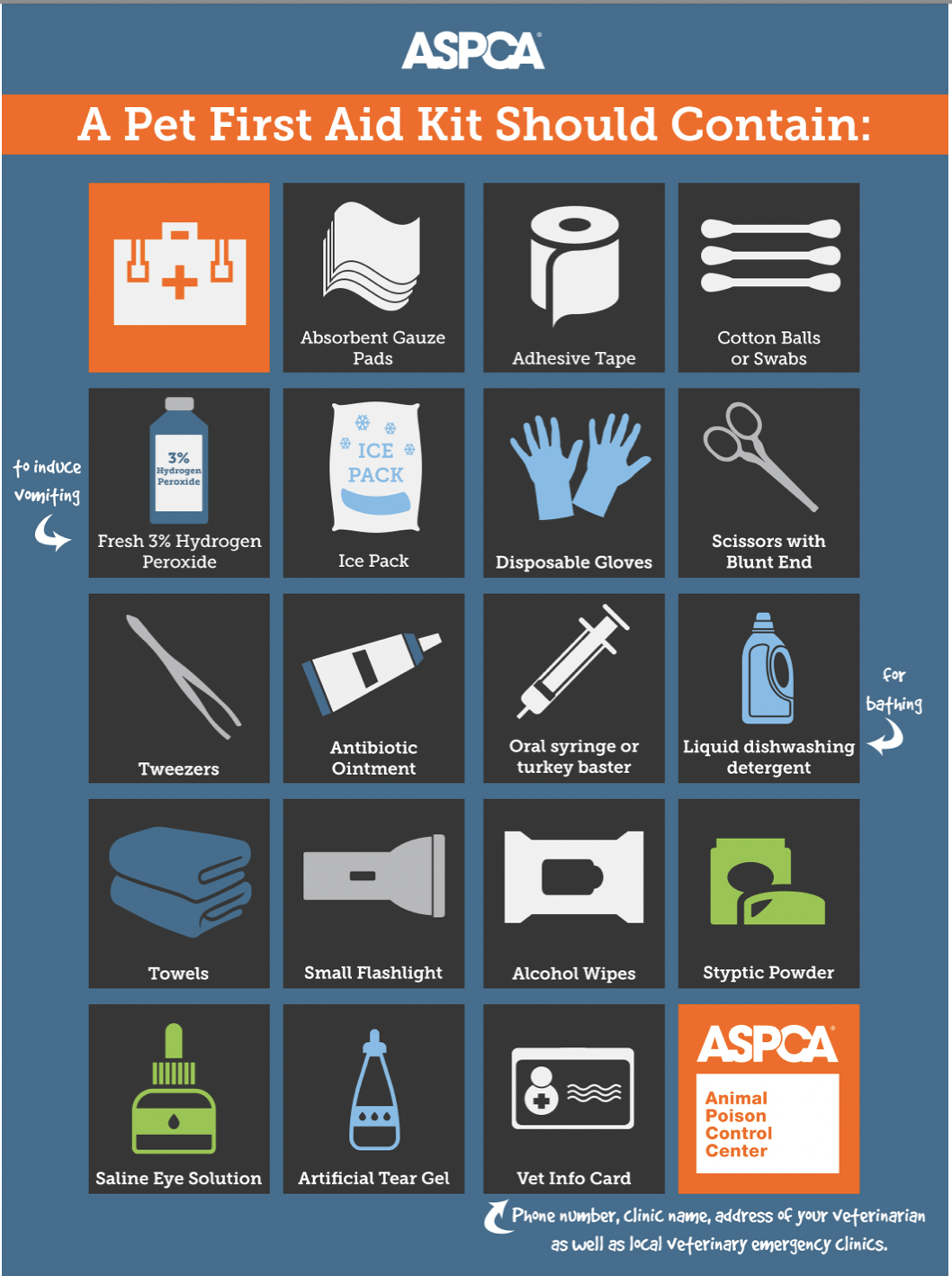HEALTH & WELLNESS FALL 2022 The Mission of the Health and Wellness Committee is to develop plans to protect and improve the health of our Breed through education, screening tools and working with other Regional PWD Clubs and the PWDCA. As stated on the PWDCA's official website, "Responsible breeding practices are encouraged to reduce or eliminate hereditary health problems which can lead to increased veterinary costs, decreased quality of life, and/or premature death." We will bring many important health and wellness related topics to our members on our Health and Wellness web page and in our News Buoy, on our social media outlets such as Facebook and Instagram, and email, just to name a few. |
Keep up to date with CDDY in our PWDs
With additional questions/concerns, feel free to reach out to:
Topic of the Day - Vaccinations vs Titers What is an antibody titer and how can it help make decisions about vaccinating our dogs?
|
Pet Wellness: The Grain-Free Dilemma |
Stepping into the dog food aisles at your local pet store can feel overwhelming. Grain-free, grain-inclusive, life stages, freeze-dried, air-dried, limited ingredient, toppers, mix-ins, frozen, wet, raw, organic, small bites, 30/20 - the list of dog food options is vast! Feeding your dog grain-free vs. grain-inclusive food has become a confusing and hotly debated discussion. Over the last several years, the Food and Drug Administration (FDA) has been investigating reports of dilated cardiomyopathy (DCM) in dogs consuming certain dry pet foods, many labeled as grain-free. As the FDA continues to investigate whether a food related link exists with canine DCM, pet owners are left with unanswered questions. What is Dilated Cardiomyopathy in Dogs? Dilated Cardiomyopathy (DCM) is a progressive, life-threatening, and often irreversible condition affecting the heart muscle of dogs. The heart enlarges and does not pump as efficiently. DCM can result in congestive heart failure (CHF) which might lead to an accumulation of fluid in the chest and abdomen. Symptoms of DCM include increased heart rate, coughing, decreased appetite, and fatigue. Hereditary vs. Non-hereditary DCM Certain breeds have a genetic predisposition to DCM, most commonly large and giant dog breeds. There is no cure for hereditary DCM, and the treatment is aimed at improving cardiac function and alleviating symptoms of congestive heart failure. Non-hereditary DCM is considered multifactorial and may be related to diet, genetics, as well as an array of underlying medical conditions. Heart health in non-hereditary DCM may improve with modifying the diet and starting appropriate medications for either CHF or treating the primary medical condition. |
What is grain-free dog food? Grains are defined as the seeds of grasses, called cereal crops, which are grown as food. Grain-free dog foods do not contain corn, barley, rice, oats, rye, and wheat but may incorporate substitute carbohydrate sources, such as lentils, peas, potatoes, and legume seeds (called pulses). Grain-free dog food became popular in the early 2000s after a series of pet food recalls by the FDA involving melamine contamination. By 2019, grain-free food represented over 40% of dry pet food sold in the United States. |
Role of the FDA The FDA is responsible for making sure food for people and animals is safe, properly manufactured, adequately labeled, and has an appropriate function. Since 2015, the FDA has been investigating reports of DCM in dogs eating certain pet foods. The FDA continues to collaborate with the pet food industry, researchers, veterinary cardiologists, and nutritionists to better understand whether ingredient sourcing, formulation, and processing has contributed to the development of DCM in dogs. |
Diet-Associated DCM Investigation: Timeline
Role of Taurine Taurine is an amino acid found in fish, poultry, red meat, organ meat, and eggs. It is a component of bile acids and acts to break down fats in food. Taurine is found in body tissue and circulating in the blood. Taurine plays an important role in normal heart. With the exception of cats, most mammals are able to produce adequate levels of taurine to meet their nutritional needs. Certain breeds, including Cocker Spaniel and Golden Retrievers, have a higher propensity for developing taurine deficiency associated with DCM which scientists do not yet fully understand. The FDA is still investigating if and how taurine metabolism plays a role in canine dilated cardiomyopathy.
In August 2021, researchers at Tufts compared traditional dog food and non-traditional foods the FDA associated with possible DCM. After examining over 800 compounds, the researchers discovered that peas were at the top of the ingredient list associated with these compounds. According to the FDA, peas are common ingredients in grain-free dog foods and in some traditional dog foods. Peas are another piece of the scientific puzzle requiring further investigation. | What Pet Owners Can Do
In Conclusion As of July 2020, the FDA has received more than 1,100 reports of dogs with DCM consuming both non- traditional and traditional diets. The FDA continues to collaborate with the pet food industry, veterinary cardiologists, and nutritionists to investigate whether a connection exists between diet and DCM. Until pet owners receive greater clarity, talk to your veterinarian about your dog’s dietary needs based on current health and medical history. Do not hesitate to reach out to pet food manufacturers to inquire about their nutritional facts. |
References: L Freeman. A Broken Heart: Risk for Heart Disease in Boutique or Grain-Free Diets and Exotic Ingredients, Petfoodology blog, Jun 2018; L Freeman. Diet Associated DCM: Research Update, Petfoodology blog, Sept 2021; United States Food and Drug Administration. FDA investigating potential connections between diet and cases of canine heart disease, Jul 2018; United States Food and Drug Administration. FDA investigation into potential link between certain diets and canine dilated cardiomyopathy – February 2019.United States Food and Drug Administration. FDA investigation into potential link between certain diets and canine dilated cardiomyopathy. June 27, 2019; A Burke. Wat Dog Owners Need to Know About the FDA’s Grain-Free Diet Alert and DCM, AKC.org, Jun 2019; T Wood. UC Davis Investigates Link Between Dog Diets and Deadly Heart Disease, vetmed.ucdavis.edu, July 2018; T McReynolds. New clues to diet-associated DCM in dogs, aaha.org, Aug 2021; S Albright Investigating Diet-Related Dilated Cardiomyopathy in Dogs – It’s Complicated, akcchf.org, Apr 2021; L Case The (Dis)connection between Grain-Free Foods and DCM, thesciencedog.com, Apr 2022; NIH, Grains on the brain: A survey of dog owner purchasing habits related to grain-free dry dog foods, May 2021, L Freeman et. al., Prospective study of dilated cardiomyopathy in dogs eating nontraditional or traditional diets and in dogs with subclinical cardiac abnormalities, Journal of Veterinary Internal Medicine, Mar 2022. |
Useful Tools for the Unexpected
Watch this video from the AKC to learn how to do CPR on your dog! And do you know how to do the doggy Heimlich? Check out what the AKC has to say here! |
1. Animal Poison Control Center: 888-426-4435 2. Your closest 2-3 emergency vets. Make sure to call ahead and explain your situation to the vet before you arrive. Although some emergency vets are open 24/7, not all have the capacity to handle your case OR they like to be prepared for your arrival and give specific arrival instructions.
3. Your local vet. Some vets have "urgent care" time slots aside for their patients that have an urgent (but not necessarily emergency) case. Call ahead to make sure they're prepared for your dog. 4. First Aid Kit See here for more first aid kit tips! |
You never know when disaster will strike so be prepared! Keep this Pet Disaster Checklist handy and along with some tips from the Red Cross here. |



 Are Peas a Problem?
Are Peas a Problem?

